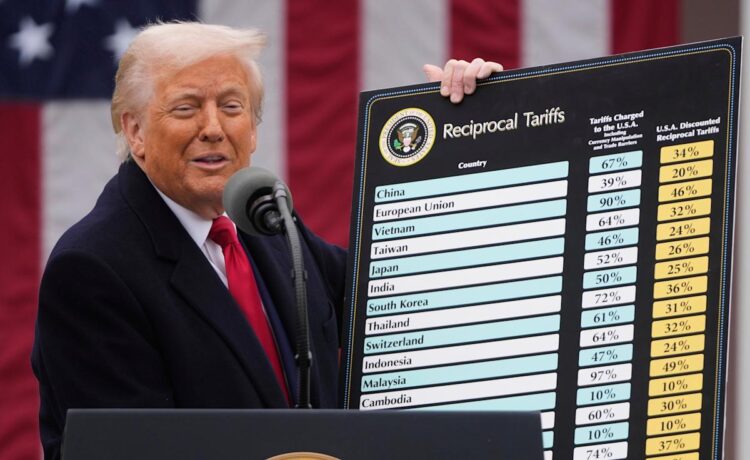US stock market futures sank on Sunday evening after the new US tariff policy began collecting duties over the weekend and global trade tensions continued to rise.
Earlier on Sunday, Administration officials defended President Trump’s plans across networks.
Speaking to CBS News, Commerce Secretary Howard Lutnick asserted that the tariffs “are definitely going to stay in place for days and weeks. That is sort of obvious. The president needs to reset global trade.”
Speaking to NBC News, Treasury Secretary Scott Bessent stated: “I see no reason that we have to price in a recession.” Bessent, who is not seen as a driver of the tariff policy, added: “We get these short-term market reactions from time to time. The market consistently underestimates Donald Trump.”
Speaking to ABC News, National Economic Council Director Kevin Hassett said that “more than” 50 countries had already reached out to the White House to begin trade talks. Asked about a video claiming the president was purposely “crashing the stock market by 20%” — which Trump’s Truth Social account shared on Friday — Hassett said: “He’s not trying to tank the market. He’s trying to deliver for American workers.”
Speaking to Fox News, trade advisor Peter Navarro responded to a question about Vietnam being “ready” to discuss removing tariffs on the US by saying that “Vietnam is the poster child for non-tariff cheating.” Navaro later added: “This is not a negotiation. This is a national emergency based on a trade deficit that’s gotten out of control because of cheating. … Don’t say you want to lower the tariffs and be done with it. It’s the non-tariff cheating. Stop manipulating your currencies. Stop dumping stuff in.”
On April 2 Trump announced a blanket 10% tariff on all goods coming into the US in addition to new duties on goods from 185 countries, which the president described as the “worst offenders” in terms of perceived unfairness on trade, slated to kick in on April 9.
Read more: What are tariffs, and how do they affect you?
American customs officials began collecting the new 10% tariff on imports from many countries on Saturday morning after the US stock market saw its worst week since 2020. US futures dropped at the open on Sunday evening while Bitcoin, seen as a proxy for risk, sold off. Bloomberg reported that Chinese investors “are bracing for a grim Monday as the nation’s markets return from an extended weekend.”
Various countries are still deciding how to respond (or not), and companies have begun adjusting to the new reality — largely by raising prices. Some countries responded with new tariffs of their own: Canada announced new duties on certain vehicles imported from the US, and China announced that it will impose countermeasures against the US starting April 10, including a 34% tariff on US goods.













